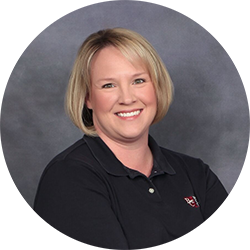Flood Insurance: Escrow Option Notification Deadline Approaching
For those banks that did not qualify for the small bank exemption as of January 1, 2016, you must offer borrowers the option to escrow their flood insurance premiums on any existing loan secured by  residential improved real estate or a mobile home located within a SFHA.
residential improved real estate or a mobile home located within a SFHA.
This Escrow Option Notice (see below) must be provided no later than June 30, 2016. It should be provided for any loans, subject to the escrow requirement, made prior to 1/1/16 that are on the books as of the date the bank chooses for the notification. The Escrow Option Notice may be provided with other disclosures (i.e., periodic statements).
If a borrower requests an escrow account as a result of the notification, the bank must begin to escrow for flood insurance as soon as reasonably practicable.
You have the option to escrow all premiums and fees for the payment on your flood insurance policy that covers any residential building or mobile home that is located in an area with special flood hazards and that secures your loan. If you choose this option:
• Your payments will be deposited in an escrow account to be paid to the flood insurance provider.
• The escrow amount for flood insurance will be added to the regular mortgage payment that you make to your lender or its servicer.
• The payments you make into the escrow account will accumulate over time and the funds will be used to pay your flood insurance policy when your lender or servicer receives a notice from your flood insurance provider that the flood insurance premium is due.
To choose this option, follow the instructions below. If you have any questions about the option, contact [Insert Name of Lender or Servicer] at [Insert Contact Information].
[Insert Instructions for Selecting to Escrow]
Published
2016/06/21
Amy Kudlacek

Amy Kudlacek
Amy brings many years of banking and compliance experience to Banker’s Compliance Consulting. She has worked for both large and small financial institutions and spent time working in every area of a bank. She started out as a teller in college and eventually became a branch manager. Her love, however, was always compliance. Amy began her career with Banker’s Compliance Consulting in 2000. Her knowledge and experiences have allowed her to develop a well-rounded and practical approach to regulatory compliance. Amy is CRCM certified, has a Bachelors Degree in Business Administration and is a graduate of the ABA Compliance School. Amy & her husband have two children at home and stay busy following their activities. They spend a lot of time in the bleachers!
